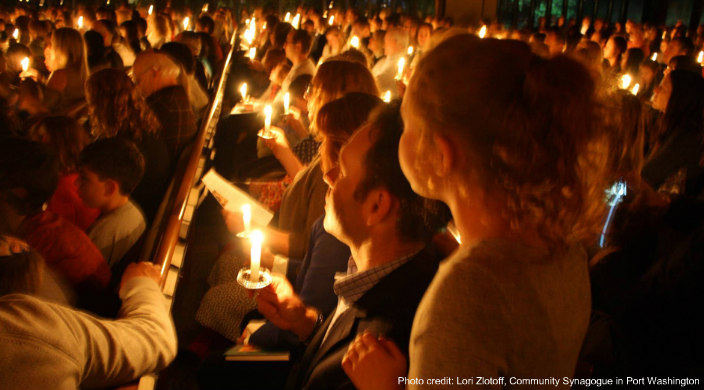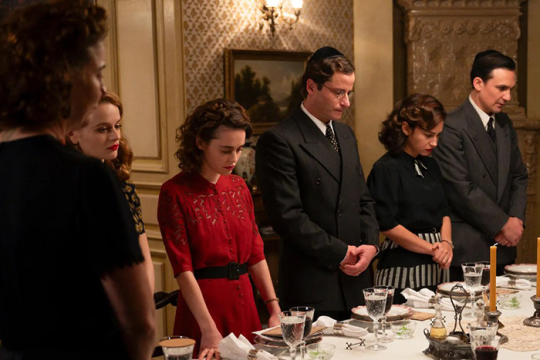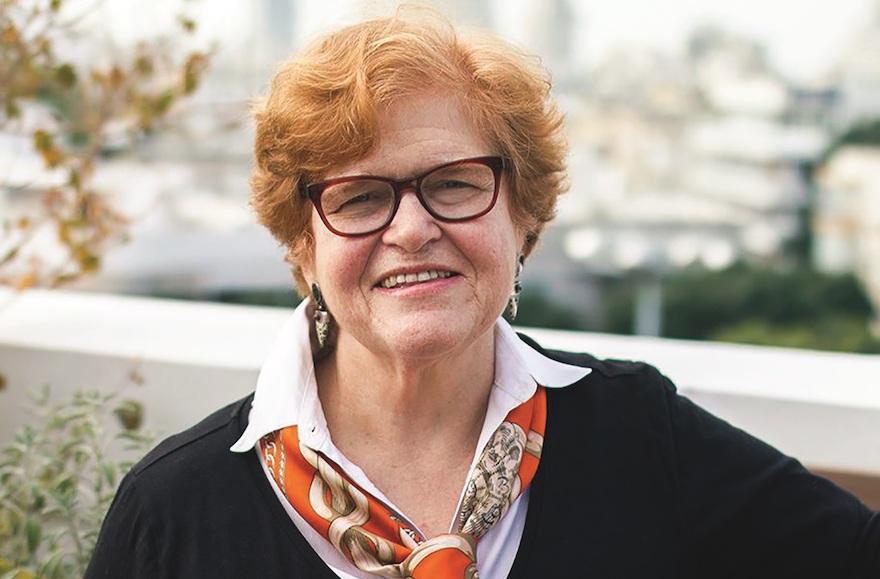
Editor's note: The text that follows was adapted from an address that was presented before a live audience at the 2019 Union for Reform Judaism Biennial on Saturday, Dec. 14.
Jersey City. Pittsburgh. Poway. Hypercacher in Paris. Halle. Crown Heights. The list of places comes tripping off our tongues with an easy familiarity – places where Jews have been subjected to murderous attacks.
We Jews belong to a strange fraternity. Even those among us who know very little about our history, our tradition in all its manifestations, know these names, know when Jews are being attacked just for being Jews.
Today, worldwide, Jews are frightened. They are shell-shocked at the seemingly sudden reemergence of an age-old hatred. We see antisemitism on the right and on the left; it is depressing and bewildering.
But as much as I worry about what the antisemites might do to us, I worry, too, about what we might do to ourselves because of antisemitism. Has our concern about antisemitism become the leitmotif, the cornerstone, of our Jewish identity? Are we focusing on it too much?
I have spent 40 years swimming in the sewers of Jew-hatred, antisemitism, and Holocaust denial. Yet I ask: Are we allowing it to do something to us?
Recently, a student of mine – a senior, who’s been my student for four years – came into my office. Suddenly he was wearing a , and there was something in me that wanted to say, “Why the new headgear?”
But I decided that wasn't appropriate, and I said nothing. We talked about his paper and his post-graduation plans, and then, as he stood to leave, he turned around and said to me, “Look. You notice?”
I said, “Oh, yeah. What's that about? You haven't worn that before.” And he said to me, “There have been so many attacks on Jews recently. I've decided every time there is an antisemitic act, I am going to wear my kippah to show the antisemites they can't frighten me.”
I smiled. After all, I admire his moxie, his chutzpah, his desire to show his identity and not be not cower in fear.
But at the same time, inside, my heart was breaking – because he had allowed the antisemites to determine when he felt Jewish.
They were controlling his Jewish identity. He had ceded to them the power over his Jewish identity. In short, he was motivated by the “oy” and not the joy of Jewish life.
That's not my Judaism, and I don't want it to be his.
No, my Judaism is a Judaism that says on Shabbat, not only do you rest, but everyone in your household rests, irrespective of their particular identity. Even your animals rest.
My Judaism offers the same reward – long life – to the person who respects their parents as well as the person shoos away the mother bird before they take the eggs of the hatchling, so the mother bird’s heart won’t break when she sees her young taken. Life is precious, life is holy.
My Judaism says that when you can’t plow your land with an ox and a cow because the ox is so much stronger, and it might put undue pressure on the cow. We have to worry about the vulnerable among us, even amongst the animals.
My Judaism says, let your land lie fallow every seven years because it needs to be renewed and refreshed. And it said it long before the climate change movement.
My Judaism thought justice was and is so important that it didn't say “find justice,” “observe justice,” “do justice.” It said, “pursue justice,” and it said it twice: Tzedek, tzedek tirdof.
My Judaism includes an indelible connection to the State of Israel, even when I disagree with its policies, not because it's beleaguered (which it often is) but because it represents the Jewish people's return to agency and power over our own fates.
I was glad that my student wanted to proclaim his identity, but as he left my office, I prayed that he’d build it eventually on the knowledge of what Jews do, and not what is done to Jews.
In Holland and Germany, after the attack, when the police wouldn't let people go out of the building that was serving as a synagogue because the situation was still insecure, they continued to pray and to sing. And then, when they were evacuated to the hospital, they gathered in the cafeteria and they finished their prayers. And they sang and they danced. And then they had a good German beer.
It was an affirmation of life in the face of potential death. But for a reinforced door, there could have been a tragedy of unbelievable proportions. Those Jews were sending us a message: Even as others rise up to harm us and try to destroy us, we live as Jews – not because of them, but despite them, we revel in our Jewish identity.
And so my hope for my student – and for the next generation – is that as they go through life, they will know that being a Jew is about so much more than just being a victim.
My prayer is that affirmation of their Jewish identity will be rooted not in Jew as object (what is done to Jews) but in Jew as subject (what Jews do).
They’ll be aware of antisemitism, yes – but my prayer is that they will always embrace their tradition because of its wisdoms, its teachings, and how much it has given to the world.
May they embrace Judaism because it is theirs. May you embrace it because it is yours. May we all embrace it because it is ours. Ken yehi ratzon – so may it come to be.
Related Posts

“We Were the Lucky Ones:” Bringing The Holocaust Out of History Books and Into Our Homes

Harnessing the Power of our Mothers Around the Seder Table


